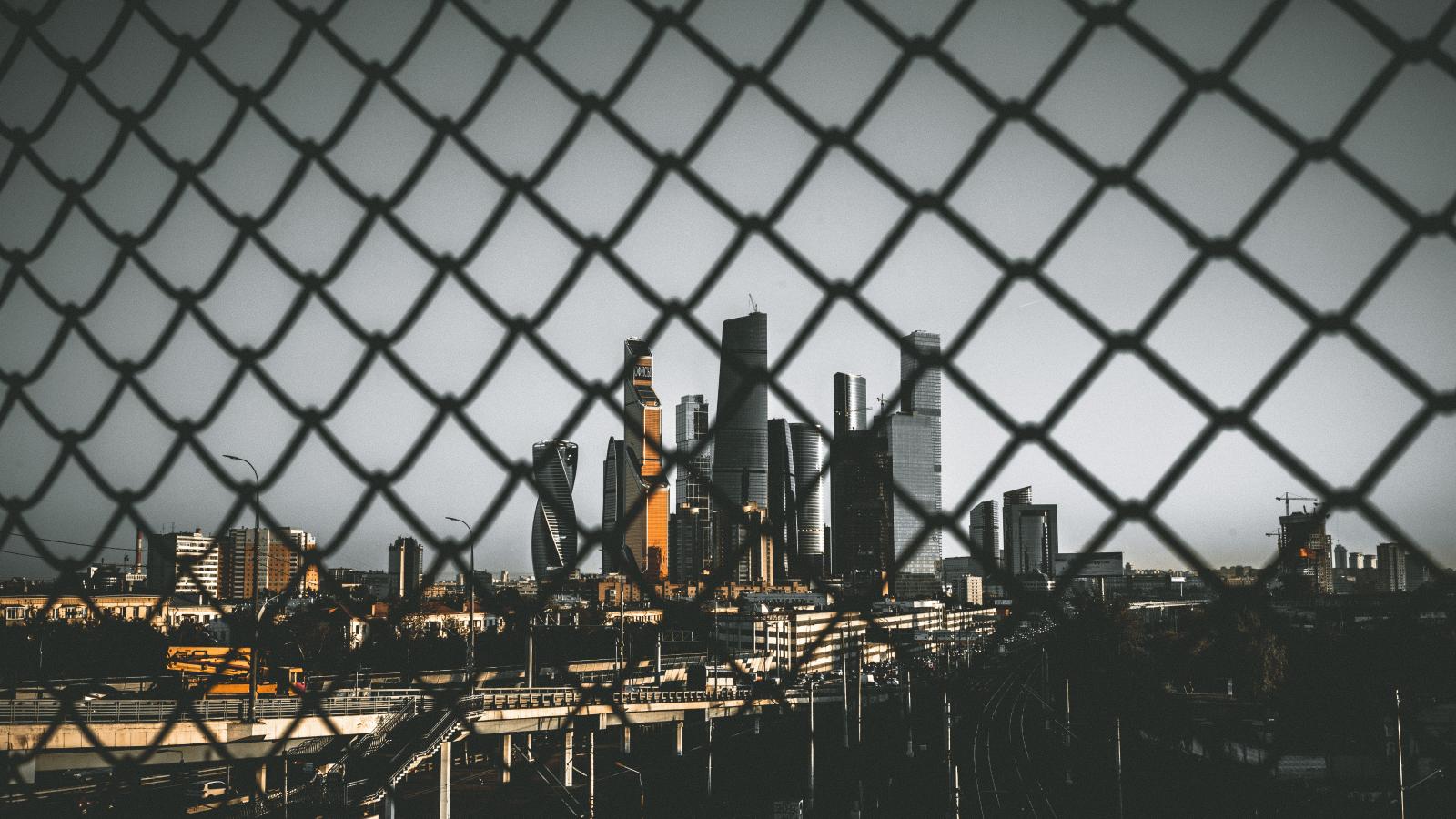
The ECGI blog is kindly supported by

Why do sanctions against Russia miss the target? A corporate governance perspective
Vladimir Putin’s decision to invade Ukraine has created a new reality for Russia’s isolation. As the result of “unprecedented” and “devastating” sanctions against Moscow, Russia’s economy faces rising inflation, unemployment, and the worst economic recession in decades. Experts predict that the Russian economy could shrink by 8% this year – a record low since 1994. It might appear that sanctions have successfully reached their goal by putting Russia’s economy and Putin’s regime on their knees. But do they? Are these sanctions efficient as they seem or are claimed to be? How do the introduced penalties impact the prospects of green development?
Are anti-Russia sanctions as efficient as they seem to be?
The history of sanctions against Russia can be traced back to 2014, when Russia violated international law and annexed the Crimea Peninsula. Back then, the West introduced coordinated sanctions that, among the rest, restricted access to Western financial markets and services for selected Russian state-owned enterprises and placed embargos on exports of specific high-tech and military equipment to Russia. Over the years, the sanctions list grew with the same narrative that sanctions “hit the bullseye of the Putin regime” and successfully prevent escalation in Ukraine. Obviously, it was a false assumption that exposed a weak link between the sanctions and Russia’s actual economic, political, and social conditions.
Growing economic pressure from the West has already expedited two major trends of Russia’s economy: the lack of economic growth and the state sector’s expansion.
Growing economic pressure from the West has already expedited two major trends of Russia’s economy: the lack of economic growth and the state sector’s expansion. According to the World Bank data, Russia’s GDP growth was less than half of the global average for the past decade. In 2020, it shrunk to -3%, the lowest since the financial crisis of 2008. At the same time, the state’s dominance in Russia’s economy became more profound. The Federal Antimonopoly Service of the Russian Federation revealed that the combined contribution of state-owned enterprises (SOEs) to Russia’s GDP in 2018 reached 60 percent. The current sanctions will uphold this expansion putting Russian SOEs in the spotlight. However, the effect of those sanctions can be undermined by several important features of Russia’s state ownership system and its governance.
Despite the term ‘corporation’ in their title, state corporations are unincorporated non-profit entities that have a clear non-financial focus – the interests of the Russian state.
First, SOEs in Russia are decentralized and heterogeneous. The key federal property owners are state corporations. They control a broad portfolio of companies resembling a classic holding company structure that governs subsidiaries and affiliated organizations based on direct, indirect, or cross-shareholding. Their portfolio companies have a commercial focus and are very diverse in terms of industries, supply chains, markets, and organizational forms. Despite the term ‘corporation’ in their title, state corporations are unincorporated non-profit entities that have a clear non-financial focus – the interests of the Russian state. This means that: (1) state corporations’ incentives are not driven by financial results; and, (2) they are not the main sources of revenues, but their portfolio companies are. In other words, the sanctions focused on state corporations might miss the real target – portfolio companies that fall outside the category of SOEs and, as a result, are hardly spotted by the sanctions.
Second, the state is a minority shareholder in half of incorporated SOEs in Russia. Notwithstanding a minority share, the state still utilizes several governance tools to pursue its interests, including board and audit commission nominations, cumulative and qualified majority voting, access to financial and other corporate documents, ‘golden shares,’ and legislative provisions that protect the state’s share from any dilution. Minority shareholding allows the state to exercise actual control over a much larger number of profitable companies, which again are not covered by the sanctions.
Third, Russia’s state assets management lacks a correlation between management remuneration and the companies’ financial performance. There is no solid link between profit and management incentives in many SOEs, including the largest exporters Gazprom and Rosneft. Therefore, financial losses resulting from the sanctions would not substantially affect incentive structures of management existing in these SOEs.
The explicit dependence on Russia’s mineral resources explains why Western countries have been avoiding targeting Russia’s commodity exporters directly until recently.
Finally, as of December 2021, China was among Russia’s top trading partners, with 13.2% of Russia’s total exports. Along with other BRIC countries, China has not been rushing to join the sanctions. European countries aggregately accounted for another large trading portion – almost 38% of Russia’s total exports in 2020. The same year, 26% of the EU’s oil imports and 40% of the gas imports were delivered by Russia. The explicit dependence on Russia’s mineral resources explains why Western countries have been avoiding targeting Russia’s commodity exporters directly until recently. Only after Russia’s invasion, multinational oil companies have openly started distancing themselves from their Russian partners amid public pressure. Germany announced that it froze the Nord Stream 2 pipeline project, and the US declared a ban on Russian oil imports. It is still unlikely that the EU will follow the US’s example by introducing an embargo on Russia’s oil and gas in the near future since Europe is in a much more vulnerable energy position compared to the US. However, even if the EU decides to ban Russian oil and gas, population and economic growth will inevitably boost global energy consumption, particularly in developing Asian countries. According to the US Energy Information Administration (EIA) experts, this consumption will increase by nearly 50% in the next 30 years, with petroleum and other liquid fuels remaining the world’s largest energy source. This means that despite the US and even perhaps the EU decisions, there will be a strong demand for Russian energy globally, especially in Asia.
The prospects of green development
Russia is the largest country in the world that spans nine time zones. It is also one of the richest countries for natural resources, including oil, gas, and minerals. Even before the current sanctions were imposed, Russia’s economy had already suffered from low energy efficiency, unsustainable use of resources, obsolete production processes, and, as a result, deep ecological problems. More than 20% of the world’s forests are in Russia. In 2018, Russia ranked first in the world in terms of the rate of loss of wild, most ecologically valuable forests. In Russia, the climate warms about 2.5 times faster than the global average. Therefore, Russia’s ecological stagnation impacts not only Russia but the entire continent and beyond.
Russia’s further isolation from crucial markets and technologies will have a far-reaching and detrimental impact on the global ecology and climate.
It is worth mentioning that due to international market integration, Russian companies and financial institutions have achieved a certain amount of progress in incorporating ESG policies in their operations. In 2019, the Moscow Stock Exchange joined the international initiative ‘Exchanges for Sustainable Development’ and launched a special section for sustainable development securities that included ‘green’ and social bonds. Large commercial banks started offering green and responsible financial instruments and limited loans to companies with unacceptably high ESG-associated risks. Companies increasingly issued non-financial reports following the GRI (Global reporting initiative) standards. The Social Charter of Russian Business united 270 organizations that share responsible business principles. Finally, the Central Bank of Russia introduced the Recommendations on implementing the principles of responsible investment.
However, the sanctions might put this progress on hold. The introduced restrictions will accelerate Russia’s economic and technological decline while transitioning to a green economy and decarbonization requires cutting-edge technologies, capital, and effective institutions. Russia’s further isolation from crucial markets and technologies will have a far-reaching and detrimental impact on the global ecology and climate. The sanctions on Russia will deprive “Russia’s industry from the technologies desperately needed today to build a future”, as EU President Ursula von der Leyen put it. However, the international community should understand that it is not only Russia’s future, but that of the world, which could be at stake – another unfortunate victim of the invasion of Ukraine.
Dr. Roza Nurgozhayeva is Assistant Professor of Law at Nazarbayev University, Kazakhstan.
The ECGI does not, consistent with its constitutional purpose, have a view or opinion. If you wish to respond to this article, you can submit a blog article or 'letter to the editor' by clicking here.
An initial version of this article ‘Economic sanctions against Russia could put the world’s future at stake’ by Dr. Roza Nurgozhayeva was published in AsiaGlobal Online (AGO) on 17 March 2022.
"Corporate Governance In Russian State-Owned Enterprises: Real Or Surreal?" Nurgozhayeva, R. is published in the Asian Journal of Comparative Law 2022.



